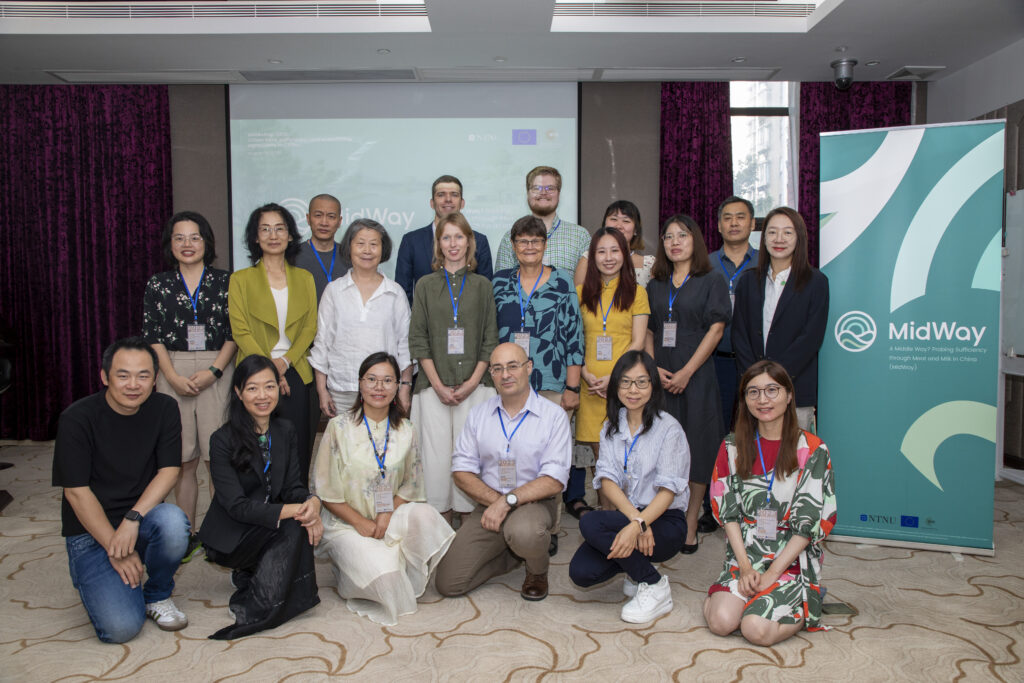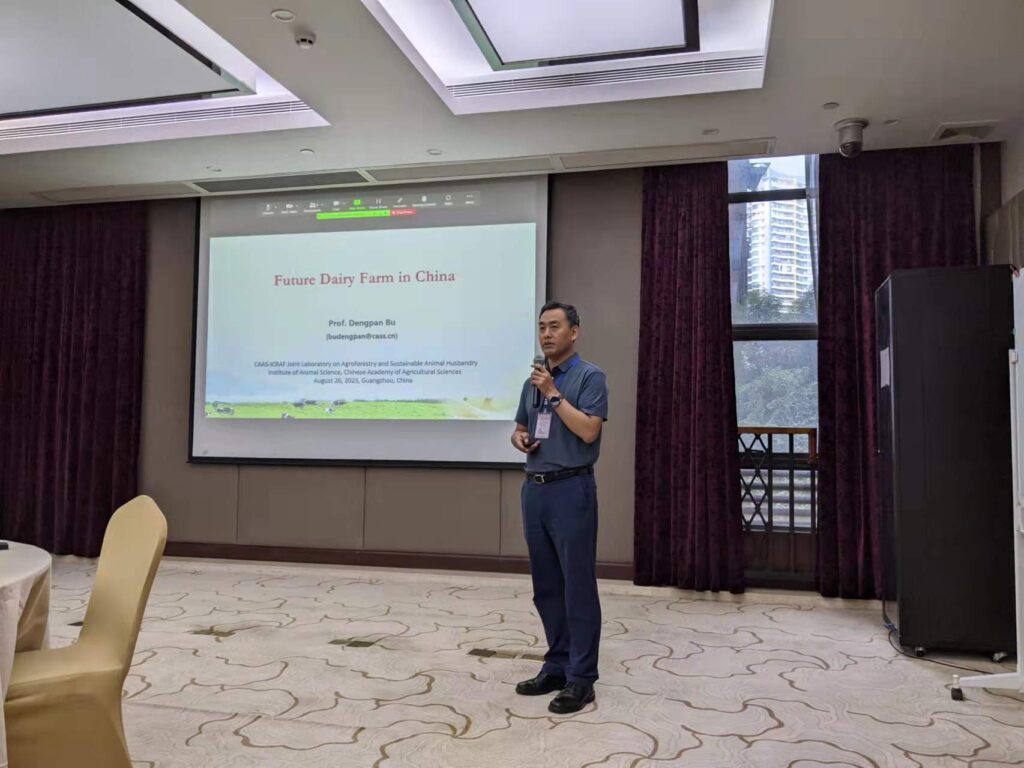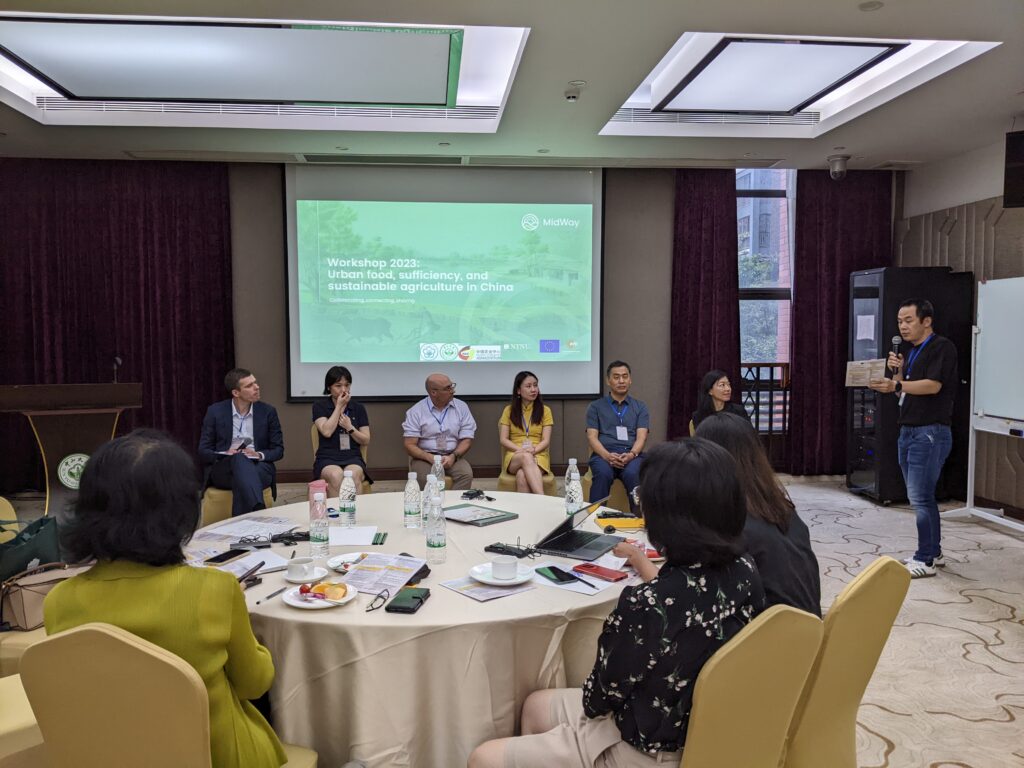On 26 August, DCZ experts Eva Sternfeld and Michaela Boehme participated in a workshop on “Urban food, sufficiency, and sustainable agriculture in China”. The workshop was organized by the MidWay project – an ERC (European Research Council)-funded research project studying the sustainable development of the meat and dairy sectors in China based at the Norwegian University of Science and Technology (NTNU). The event was co-organized by the Sino-German Agricultural Centre (DCZ) and the Chinese Academy of Agricultural Sciences (CAAS) and hosted by Sun-Yatsen University (SYSU) in Guangzhou.
Against the background of China’s booming livestock sector, the MidWay project uses a “systems of provision” approach to study the normalization of animal foods in China. By asking how meat and milk have become constructed as essential foods in the Chinese diet, the project seeks to highlight the social, technical, and cultural variables that influence food practices and probe alternatives to an animal protein-centered diet. The workshop was designed to bring together different stakeholders from China’s meat and dairy sector to exchange perspectives and facilitate mutual learning.
The event started with opening speeches by co-organizer Eva Sternfeld from the DCZ and Tingting CHEN from host institution SYSU as well as an introduction to the MidWay project by principal investigator Marius Korsnes. These were followed by presentations from Scientific Advisory Board members Thomas DuBois from Beijing Normal University and Chen LIU from SYSU. While professor LIU highlighted the complex effects of digitalization on eating practices in China, professor DuBois stressed the need to move beyond the question of what people eat to inquire about how and why people eat to understand increasing meat and milk consumption.
A special session chaired by DCZ expert Michaela Boehme was dedicated to the development of China’s dairy sector. Dengpan BU from the Institute of Animal Sciences at CAAS gave an overview of China’s fast-growing dairy industry and discussed some of its implications for global markets as well as social and environmental sustainability. In her talk, Sau-Wa MAK from Hong Kong Shue Yan University examined the cultural politics that transformed milk from a medicine to a staple food of the Chinese diet. She also discussed the influence of nutrition science, technology, and advertising in shaping meanings of health, gender, and progress associated with milk in today’s China. Chenjia XU from South China Normal University examined China’s dietary guidelines on milk consumption from a sociology of scientific knowledge perspective. Her presentation showed how a feedback loop between industry, research, and the Chinese state reproduces knowledge about the necessity to drink milk with the aim of enrolling Chinese consumers into the national strategy of dairy industry development.
Other sessions of the workshop explored the development of China’s pork sector. While Dongming XU from NTNU presented a historical overview of pig raising based on archeological and archival records, Gengyuan CAI from South China Agricultural University looked at the current state of China’s hog industry, highlighting the disappearance of backyard farming practices and the trend towards ever larger pig farms and high-rise piggeries. These perspectives were complemented by a presentation by Xingfeng YANG from the Springfield Eco-Agriculture Corporation, discussing how traditional hog raising practices amongst the Naxi ethic minority from Yunnan province help support rural livelihoods while protecting the environment.
The workshop also looked at traditional food practices such as the important role of wet markets in China’s sustainable food system (Shuru ZHONG from SYSU) and fostered exchange through roundtables and group work discussions, where participants discussed what a sustainable meat and dairy sector might look like in China. The discussion results suggested that China should neither continue to focus on output increases and efficiency as main goals of animal farming development nor simply copy Western discourses around animal protein alternatives. Rather, China must find its own approach towards sustainable animal farming based on its historical experiences and agricultural traditions.








